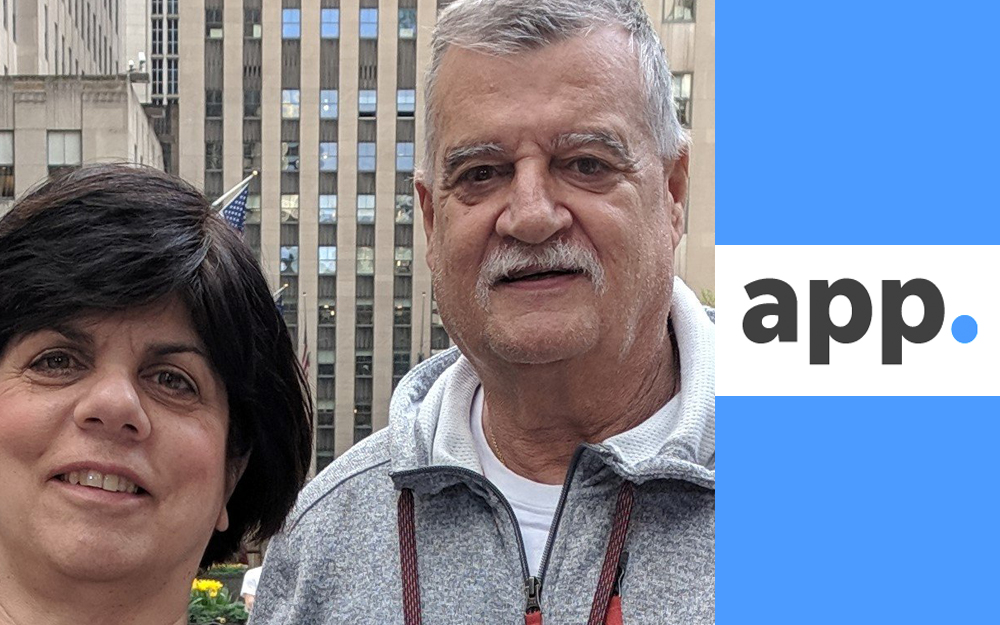Hazlet 9/11 survivor’s desperate plea for kidney could save 20 other lives
20 years after he helped a visually impaired stranger escape the World Trade Center, Frank Savio’s good deed sparked an outpouring of kidney donors.
On Sept. 11, 2001, Frank Savio was working on the 10th floor of the World Trade Center’s south tower when the terrorist attack began. As the Hazlet resident began evacuating down the narrow, cramped stairwell, he felt a hand on his shoulder.
It belonged to a fellow building occupant who was visually impaired.
“Someone said to Frank, ‘This person needs to be guided down the stairs,’” Savio’s wife, Phyllis Savio, recounted.
Frank did the job. They both escaped before the tower collapsed, but amid the chaos that was unfolding on lower Manhattan’s streets, Savio never got the person’s name.
It was one of many good deeds on that tragic day, and almost exactly two decades later— it’s amazing how life works, sometimes — it spawned an outpouring of generosity that could save more than a few lives.
Because of what happened with Savio on 9/11, at least 20 ailing people are a big step closer to a desperately needed kidney transplant.
An explosion of donors
Frank Savio, who has lived in Hazlet since 1986, worked at the World Trade Center as a wiring technician. He was there for the 1993 bombing, and his experience from that day convinced him to evacuate after the first plane struck the north tower — even though south tower occupants were initially encouraged to remain in place.
“He never talks about 9/11, even now,” Phyllis Savio said. “It’s too painful for him. The things he saw were so horrific. Over the years he’s worked hard to put them in place.”
Tears and goosebumps:9/11 exhibit commemorates Monmouth County’s fallen and heroes
In 2007, Frank was diagnosed with kidney disease. By 2015, “his kidneys were really starting to fail,” Phyllis said. “We were told to start looking at transplant centers.”
In 2017 he started dialysis — 10 hours a night, every night, with a home-dialysis machine.
“Within the last year or so he really started to slow down,” Phyllis said. “If he just walked the garbage out to the curb, he would have to sit down on the couch after and catch his breath. He couldn’t even walk a whole block without stopping.”
At 66 years old, those were ominous signs. Finding a living kidney donor proved difficult. Because Frank was adopted as a baby, there were no biological relatives available who might be a match. And his blood type (type O) disqualified a decent chunk of the potential donor population.
‘There will always be a seat for you’:Transplanted heart has joined families for 10 years
In June, the Savios enlisted the help of the Flood Sisters Kidney Foundation, a New York-based nonprofit that helps those in need of kidney transplants. The foundation did some media outreach and connected the Savios with FoxNews.com, which posted a story about Frank’s plight on Sept. 10, the day before 9/11’s 20th anniversary.
“I got a slew of calls about it, 100 phone calls and emails,” said Jennifer Flood, founder and executive director of the Flood Sisters Kidney Foundation. “Lots of people, even people who weren’t healthy enough to donate or never even knew about the (donation) process, really wanted to help someone who was a complete stranger.”
On Oct. 1, while this windfall of prospective donors was being screened, the Savios got a phone call in the middle of the night.
Power of organ donations:In death, Keyport deli owner helped save the lives of four people
‘I am blown away’
It was 4:50 a.m., normally an hour when a ringing phone means trouble.
“The person on the other end said they had a kidney for Frank,” Phyllis said. “It was the last thing I was expecting. I actually thought I was dreaming.”
As is often the case with transplants, there was tragedy involved. A healthy 42-year-old died in an accident. The five-hour transplant took place later that day at NewYork-Presbyterian/Weill Cornell Medical Center in New York City.
This is his reason on earth’:Middletown toddler’s death gave the gift of life
The kidney ultimately came through another nonprofit the Savios were involved with called UNOS (United Network for Organ Sharing). Although receiving a kidney from a living donor is optimal, the Savios took the deceased donor’s kidney in case none of the living donors were a match. After four years on the transplant waiting list, they couldn’t risk waiting much longer.
“We’ve said many prayers before,” Phyllis said. “This was the one and only call.”
‘Looking to spend time with my family’:Manchester grandmother needs kidney donor
As of Friday, Frank continued to recover in the hospital.
“I am blown away by the generosity of the people who responded to my story on Fox digital news,” he said. “They are selfless individuals who are willing to help others in need. My wish is that my story helps others to receive the gift of life through organ donation.”
That’s happening. Jennifer Flood said “probably 20 to 30” of those who reached out will meet the criteria to donate a kidney.
“I have all these donors who are now going to be used for our other patients in need,” Flood said. “All because of Frank’s story.”

